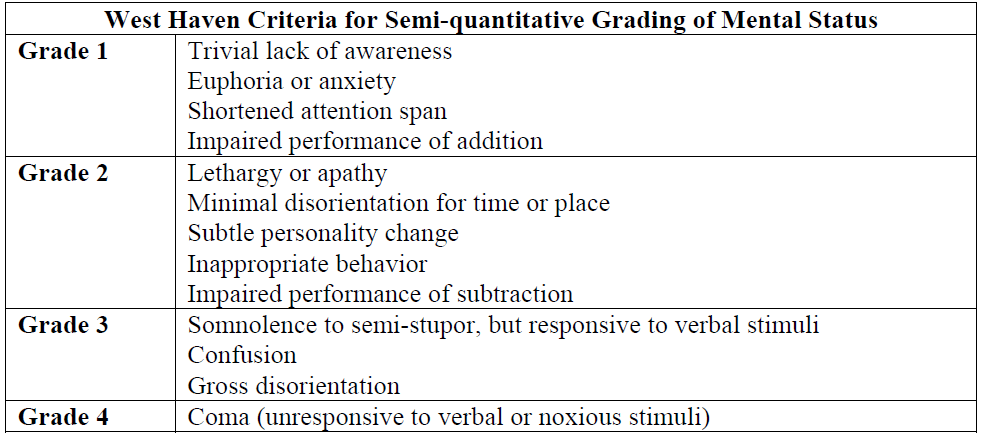Classification of hepatic encaphalopathy
Classification of hepatic encephalopathy
Several methods have been proposed for classification of HE. (1,2)
- according to the underlying disease
- type A - due to acute liver failure
- type B - due to portal venous bypass with portosystemic shunting
- type C - due to cirrhotic liver disease
- according to the severity of manifestations
- grading of HE has traditionally been defined by the West Haven Criteria (WHC), also known as the Conn score. Patients with grade 3 or 4 HE should also be monitored with the Glasgow coma scale (2)

- according to its time course
- episodic HE
- recurrent HE denotes bouts of HE that occur with a time interval of 6 months or less.
- persistent HE denotes a pattern of behavioural alterations that are always present and interspersed with relapses of overt HE
- according to the existence of precipitating factors
- non- precipitated or
- precipitated, and the precipitating factors should be specified. Precipitating factors can be identified in nearly all bouts of episodic HE type C and should be actively sought and treated when found
References:
- Vilstrup H et al. Hepatic encephalopathy in chronic liver disease: 2014 Practice Guideline by the American Association for the Study of Liver Diseases and the European Association for the Study of the Liver. Hepatology. 2014;60(2):715-35
- European Association for the Study of the Liver. EASL clinical practice guidelines on the management of hepatic encephalopathy. J Hepatol. 2022 Sep;77(3):807-24.
Related pages
Create an account to add page annotations
Annotations allow you to add information to this page that would be handy to have on hand during a consultation. E.g. a website or number. This information will always show when you visit this page.